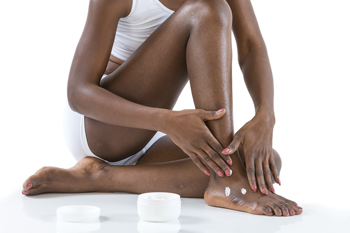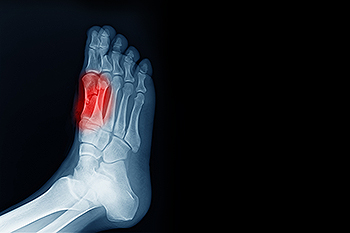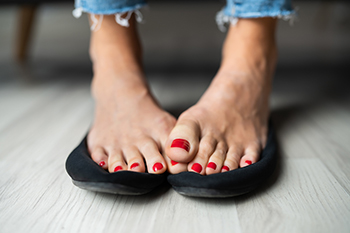
Caring for your feet is essential for maintaining overall health and well-being, yet it is a part of self-care that often goes overlooked. Establishing a daily foot care routine can help keep your feet healthy, comfortable, and free from common issues. Begin by washing your feet with warm water and mild soap, paying special attention to the spaces between your toes, and thoroughly drying them afterward. Moisturize your feet with a hydrating lotion or cream to prevent dryness and cracked skin, but avoid applying moisturizer between the toes, as it can create a breeding ground for bacteria. Trim your toenails straight across to prevent ingrown toenails, and file any rough edges with a gentle emery board. Finally, inspect your feet regularly for any signs of redness, swelling, or injury, and address any issues promptly. By incorporating these simple steps into your daily routine, you can nurture and protect your feet. If you have encountered foot problems from improper foot care, it is suggested that you consult a podiatrist who can provide you with additional everyday foot care routines.
Everyday foot care is very important to prevent infection and other foot ailments. If you need your feet checked, contact Dr. Scott Shrem from Garden State Foot & Ankle Center. Our doctor can provide the care you need to keep you pain-free and on your feet.
Everyday Foot Care
Often, people take care of their bodies, face and hair more so than they do for their feet. But the feet are a very important aspect of our bodies, and one that we should pay more attention to. Without our feet, we would not be able to perform most daily tasks.
It is best to check your feet regularly to make sure there are no new bruises or cuts that you may not have noticed before. For dry feet, moisturizer can easily be a remedy and can be applied as often as necessary to the affected areas. Wearing shoes that fit well can also help you maintain good foot health, as well as making it easier to walk and do daily activities without the stress or pain of ill-fitting shoes, high heels, or even flip flops. Wearing clean socks with closed shoes is important to ensure that sweat and bacteria do not accumulate within the shoe. Clean socks help to prevent Athlete’s foot, fungi problems, bad odors, and can absorb sweat.
If you have any questions please feel free to contact our office located in Hazlet, NJ . We offer the newest diagnostic and treatment technologies for all your foot and ankle needs.

Sesamoiditis, a condition affecting the sesamoid bones located beneath the big toe joint, merits attention for its impact on foot health. These small bones serve as pulleys, aiding in movement and weight distribution during activities like walking and running. Sesamoiditis arises from inflammation or injury to these bones, often due to repetitive stress or trauma. High-impact activities, wearing improper footwear, and sudden increases in physical activity can strain the sesamoids, leading to irritation and inflammation. Symptoms of sesamoiditis typically include pain and tenderness in the ball of the foot, particularly beneath the big toe. Swelling, difficulty bearing weight, and limited range of motion may also manifest. The discomfort associated with sesamoiditis can significantly impede daily activities and diminish quality of life. If you have pain in this area of your foot, it is suggested that you consult a podiatrist who can successfully diagnose and treat sesamoiditis.
Sesamoiditis is an unpleasant foot condition characterized by pain in the balls of the feet. If you think you’re struggling with sesamoiditis, contact Dr. Scott Shrem of Garden State Foot & Ankle Center. Our doctor will treat your condition thoroughly and effectively.
Sesamoiditis
Sesamoiditis is a condition of the foot that affects the ball of the foot. It is more common in younger people than it is in older people. It can also occur with people who have begun a new exercise program, since their bodies are adjusting to the new physical regimen. Pain may also be caused by the inflammation of tendons surrounding the bones. It is important to seek treatment in its early stages because if you ignore the pain, this condition can lead to more serious problems such as severe irritation and bone fractures.
Causes of Sesamoiditis
- Sudden increase in activity
- Increase in physically strenuous movement without a proper warm up or build up
- Foot structure: those who have smaller, bonier feet or those with a high arch may be more susceptible
Treatment for sesamoiditis is non-invasive and simple. Doctors may recommend a strict rest period where the patient forgoes most physical activity. This will help give the patient time to heal their feet through limited activity. For serious cases, it is best to speak with your doctor to determine a treatment option that will help your specific needs.
If you have any questions please feel free to contact our office located in Hazlet, NJ . We offer the newest diagnostic and treatment technologies for all your foot and ankle needs.

Plantar hyperhidrosis, a condition characterized by excessive sweating of the feet, poses challenges for those affected, often leading to discomfort and embarrassment. Several factors contribute to this condition, including overactive sweat glands triggered by the sympathetic nervous system. Genetics play a significant role, as individuals with a family history of hyperhidrosis are more prone to developing the condition. Hormonal changes, such as those occurring during puberty or menopause, can also exacerbate sweating. Additionally, medical conditions like diabetes, thyroid disorders, and infections may contribute to plantar hyperhidrosis. Psychological factors like stress, anxiety, or nervousness can further amplify sweating episodes. Furthermore, wearing tight or poorly ventilated footwear, particularly in warm climates, can worsen symptoms. If you are affected by plantar hyperhidrosis, it is strongly suggested that you visit a podiatrist who can provide you with effective relief methods.
If you are suffering from hyperhidrosis contact Dr. Scott Shrem of Garden State Foot & Ankle Center. Our doctor can provide the care you need to attend to all of your foot and ankle needs.
Hyperhidrosis of the Feet
Hyperhidrosis is a rare disorder that can cause people to have excessive sweating of their feet. This can usually occur all on its own without rigorous activity involved. People who suffer from hyperhidrosis may also experience sweaty palms.
Although it is said that sweating is a healthy process meant to cool down the body temperature and to maintain a proper internal temperature, hyperhidrosis may prove to be a huge hindrance on a person’s everyday life.
Plantar hyperhidrosis is considered to be the main form of hyperhidrosis. Secondary hyperhidrosis can refer to sweating that occurs in areas other than the feet or hands and armpits. Often this may be a sign of it being related to another medical condition such as menopause, hyperthyroidism and even Parkinson’s disease.
In order to alleviate this condition, it is important to see your doctor so that they may prescribe the necessary medications so that you can begin to live a normal life again. If this is left untreated, it is said that it will persist throughout an individual’s life.
A last resort approach would be surgery, but it is best to speak with your doctor to find out what may be the best treatment for you.
If you have any questions please feel free to contact our office located in Hazlet, NJ . We offer the newest diagnostic and treatment technologies for all your foot and ankle needs.








